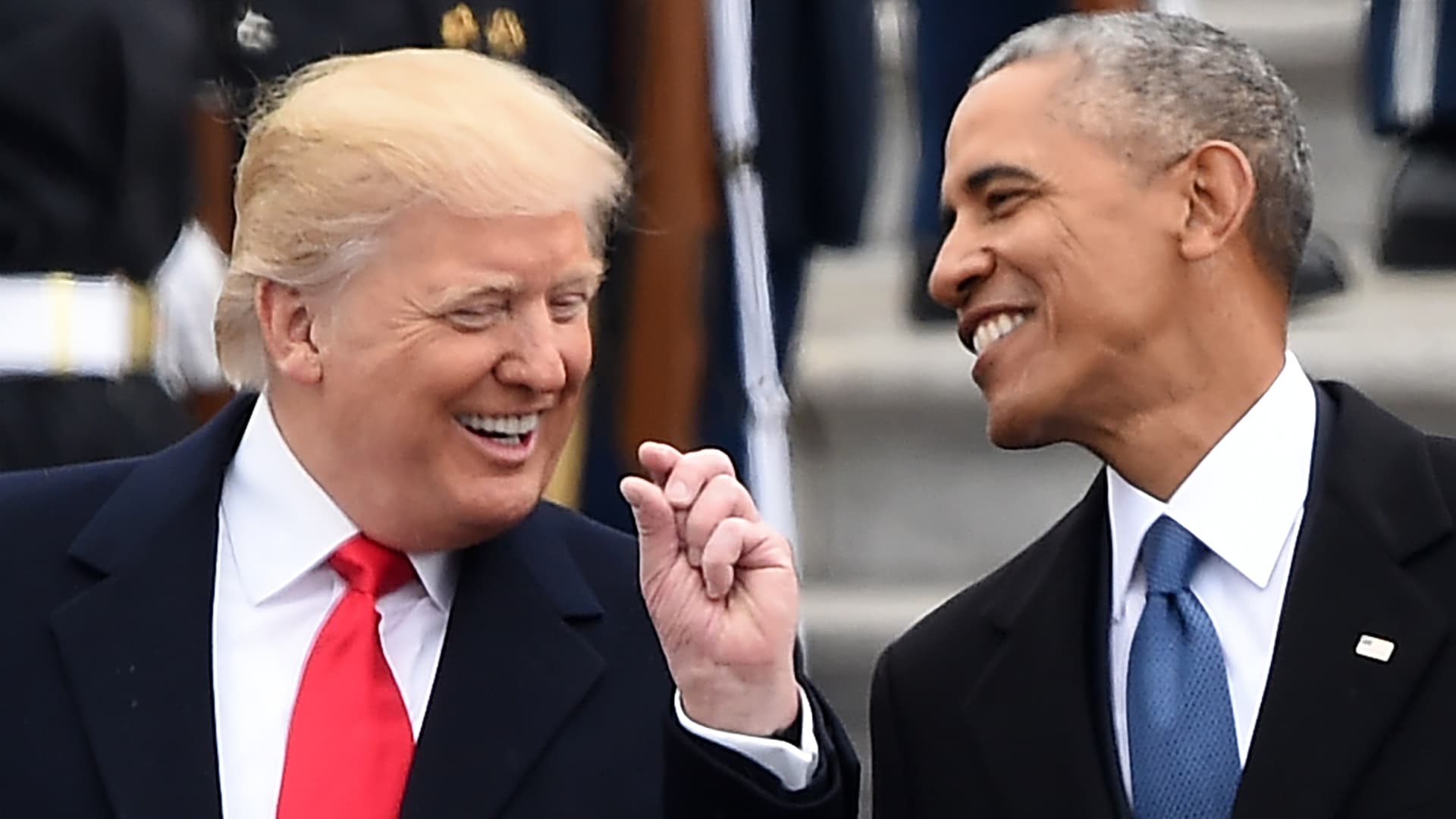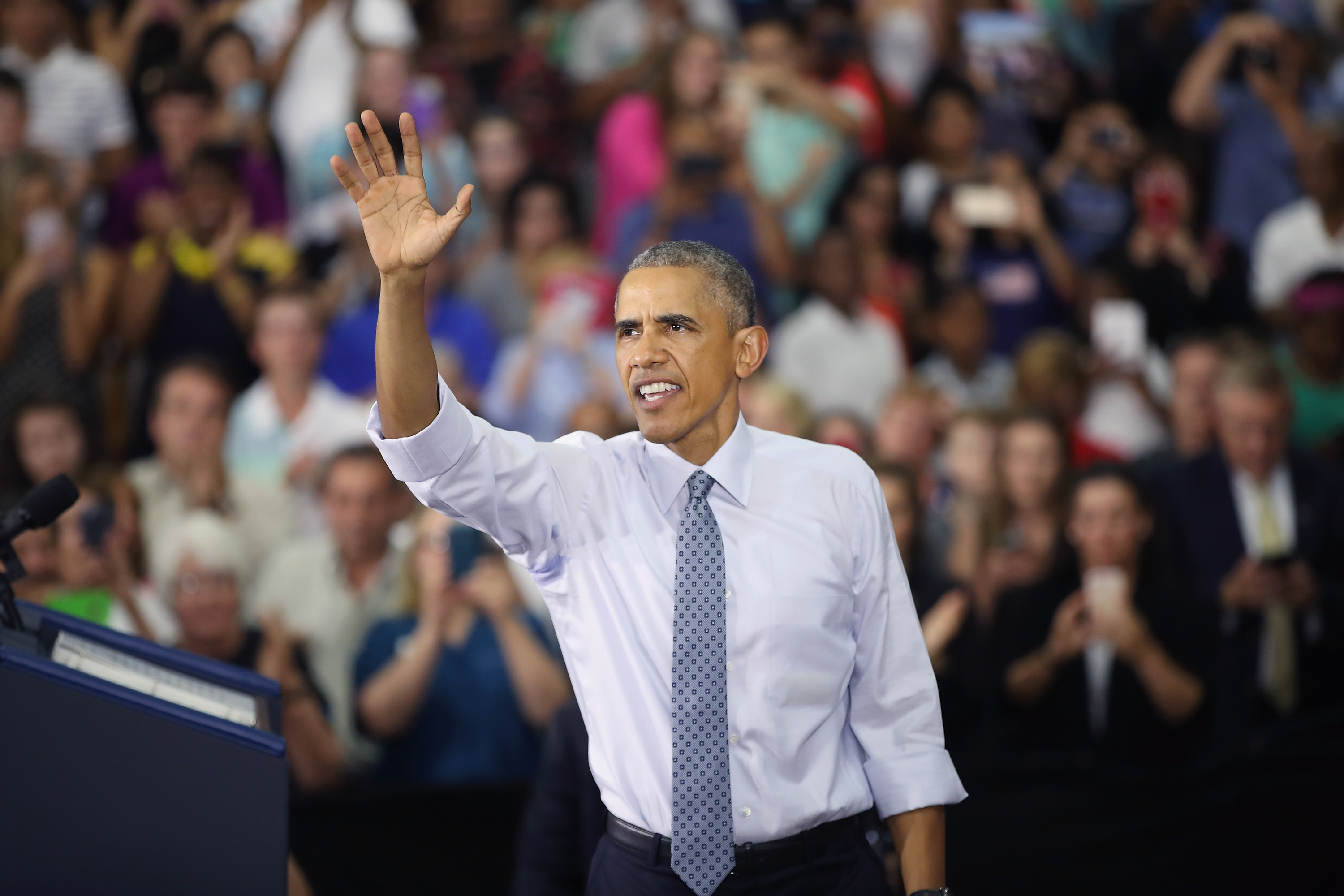When it comes to discussing modern American politics, the names Barack Obama and Donald Trump inevitably dominate the conversation. These two presidents have left an indelible mark on the United States, shaping policies, public opinion, and even global dynamics during their respective terms. Barack Obama, the 44th president of the United States, served from 2009 to 2017, while Donald Trump, the 45th president, held office from 2017 to 2021. Their leadership styles, policy decisions, and public personas could not be more different, yet both have been central figures in shaping the nation's trajectory.
Barack Obama's presidency was characterized by a focus on diplomacy, healthcare reform, and progressive social policies, earning him widespread admiration as well as criticism. On the other hand, Donald Trump's tenure was marked by a focus on economic nationalism, deregulation, and a confrontational approach to international relations. While Obama's calm and measured demeanor resonated with many, Trump's outspoken and unconventional style captured the attention of millions. The contrast between these two leaders has sparked endless debates about their legacies and the direction of the country under their leadership.
Understanding the differences and similarities between Barack Obama and Donald Trump is crucial for anyone seeking to grasp the complexities of modern American politics. This article will delve into their backgrounds, leadership styles, key policies, and lasting impacts. By the end of this piece, you will have a comprehensive understanding of how these two presidents shaped the United States and influenced the world.
Read also:Tracee Ellis Ross Hair Care Unlock The Secrets To Healthy And Vibrant Hair
Table of Contents
- Biography of Barack Obama
- Biography of Donald Trump
- Leadership Styles: A Comparative Analysis
- Key Policies of Barack Obama
- Key Policies of Donald Trump
- Economic Impact: Obama vs Trump
- Foreign Policy Approaches
- Public Opinion and Approval Ratings
- Legacy and Long-Term Influence
- Conclusion: A Tale of Two Presidents
Biography of Barack Obama
Barack Hussein Obama II was born on August 4, 1961, in Honolulu, Hawaii. He grew up in a multicultural environment, with a Kenyan father and an American mother. After graduating from Columbia University and Harvard Law School, Obama embarked on a career in public service. His rise to national prominence began when he delivered a memorable keynote speech at the 2004 Democratic National Convention. In 2008, he made history by becoming the first African American president of the United States.
Below is a table summarizing Barack Obama's personal data and professional achievements:
| Category | Details |
|---|---|
| Full Name | Barack Hussein Obama II |
| Date of Birth | August 4, 1961 |
| Place of Birth | Honolulu, Hawaii |
| Education | Columbia University, Harvard Law School |
| Political Party | Democratic Party |
| Presidential Term | 2009-2017 |
Early Career and Rise to Prominence
Before entering the White House, Barack Obama served as a community organizer, civil rights attorney, and Illinois state senator. His tenure in the U.S. Senate from 2005 to 2008 further solidified his reputation as a rising star in the Democratic Party. Obama's ability to connect with diverse audiences and articulate a vision of hope and change propelled him to the presidency.
Biography of Donald Trump
Donald John Trump was born on June 14, 1946, in Queens, New York. Before entering politics, Trump gained fame as a real estate developer and television personality, hosting the popular reality show "The Apprentice." His business acumen and larger-than-life personality made him a household name. In 2016, Trump shocked the political world by defeating Hillary Clinton in the presidential election, becoming the first U.S. president without prior military or government experience.
Here is a table summarizing Donald Trump's personal data and professional background:
| Category | Details |
|---|---|
| Full Name | Donald John Trump |
| Date of Birth | June 14, 1946 |
| Place of Birth | Queens, New York |
| Education | University of Pennsylvania (Wharton School) |
| Political Party | Republican Party |
| Presidential Term | 2017-2021 |
Business Ventures and Media Presence
Donald Trump's career was primarily defined by his real estate empire, which included iconic properties like Trump Tower. His role as the host of "The Apprentice" further cemented his status as a celebrity businessman. Trump's decision to run for president marked a dramatic shift from his business and media career, showcasing his ability to adapt to new challenges.
Read also:Bad Dates With Jameela Jamil Lessons Laughter And Life Lessons
Leadership Styles: A Comparative Analysis
The leadership styles of Barack Obama and Donald Trump could not be more different. Obama was known for his calm, deliberative approach, often emphasizing collaboration and consensus-building. In contrast, Trump's leadership was characterized by bold, unconventional decisions and a focus on disruption. While Obama sought to unite the nation through inclusive rhetoric, Trump often embraced polarization to energize his base.
Obama's Leadership Philosophy
Barack Obama's leadership style was rooted in his belief in diplomacy and thoughtful decision-making. He often emphasized the importance of listening to diverse perspectives and working across the aisle to achieve meaningful progress. This approach was evident in his handling of the financial crisis, healthcare reform, and international relations.
Trump's Leadership Philosophy
Donald Trump's leadership philosophy was centered on the idea of "America First." He prioritized economic nationalism, renegotiating trade deals, and taking a hardline stance on immigration. Trump's direct communication style and willingness to challenge traditional norms set him apart from his predecessors.
Key Policies of Barack Obama
Barack Obama's presidency was defined by several landmark policies that reshaped the United States. Some of his most notable achievements include:
- Affordable Care Act (Obamacare): A comprehensive healthcare reform aimed at expanding access to affordable insurance.
- Paris Climate Agreement: A global initiative to combat climate change by reducing greenhouse gas emissions.
- Economic Recovery Act: A stimulus package designed to address the 2008 financial crisis and spur economic growth.
Impact of Obama's Policies
Obama's policies had a profound impact on healthcare, the economy, and the environment. While the Affordable Care Act expanded coverage to millions of Americans, it also faced criticism for rising premiums and limited choices. Similarly, his environmental initiatives were praised by advocates but opposed by industries reliant on fossil fuels.
Key Policies of Donald Trump
Donald Trump's presidency was marked by a focus on deregulation, tax cuts, and immigration reform. Some of his key policies include:
- Tax Cuts and Jobs Act: A major tax reform aimed at stimulating economic growth by reducing corporate and individual tax rates.
- Travel Ban: A controversial policy restricting entry from several predominantly Muslim countries.
- USMCA: A renegotiated trade agreement with Canada and Mexico, replacing NAFTA.
Impact of Trump's Policies
Trump's policies had a significant impact on the economy and immigration. The Tax Cuts and Jobs Act contributed to economic growth but also increased the national debt. His immigration policies sparked widespread debate, with supporters praising their effectiveness and critics condemning their humanitarian implications.
Economic Impact: Obama vs Trump
Both presidents faced unique economic challenges and implemented policies to address them. Obama inherited the aftermath of the 2008 financial crisis and focused on recovery, while Trump prioritized tax cuts and deregulation to boost growth. Comparing their economic records reveals both successes and shortcomings.
Obama's Economic Legacy
Under Obama, the U.S. economy recovered from the Great Recession, with unemployment rates falling significantly. However, wage growth remained sluggish, and income inequality persisted.
Trump's Economic Legacy
Trump's economic policies led to record-low unemployment rates and a booming stock market. However, the COVID-19 pandemic reversed many of these gains, highlighting the fragility of economic progress.
Foreign Policy Approaches
Obama and Trump adopted contrasting approaches to foreign policy. Obama emphasized diplomacy and multilateralism, while Trump favored unilateral actions and a transactional approach.
Obama's Diplomatic Achievements
Obama's foreign policy successes include the Iran Nuclear Deal and the normalization of relations with Cuba. These efforts were praised for reducing tensions but criticized for perceived weaknesses.
Trump's America First Doctrine
Trump's foreign policy was defined by his withdrawal from international agreements, such as the Paris Climate Accord and the Trans-Pacific Partnership. His focus on renegotiating trade deals and confronting China reshaped global dynamics.
Public Opinion and Approval Ratings
Public opinion of Obama and Trump varied widely, reflecting the polarized nature of American politics. Obama enjoyed high approval ratings during his first term but faced criticism in his second. Trump's approval ratings remained relatively stable but deeply divided along partisan lines.
Factors Influencing Public Perception
Media coverage, economic conditions, and policy decisions played significant roles in shaping public opinion of both presidents.
Legacy and Long-Term Influence
The legacies of Barack Obama and Donald Trump will continue to shape American politics for years to come. While Obama is remembered for his progressive policies and unifying rhetoric, Trump's impact is defined by his disruptive approach and lasting influence on the Republican Party.
Lessons from Their Presidencies
Both presidents offer valuable lessons about leadership, governance, and the complexities of navigating a divided nation.
Conclusion: A Tale of Two Presidents
In conclusion, Barack Obama and Donald Trump represent two distinct eras in American history. Their contrasting leadership styles, policy priorities, and public personas highlight the diversity of approaches to governance. While opinions about their legacies may differ, their influence on the nation is undeniable.
We encourage you to share your thoughts on this comparison in the comments below. If you found this article insightful, please consider sharing it with others or exploring more content on our site.

